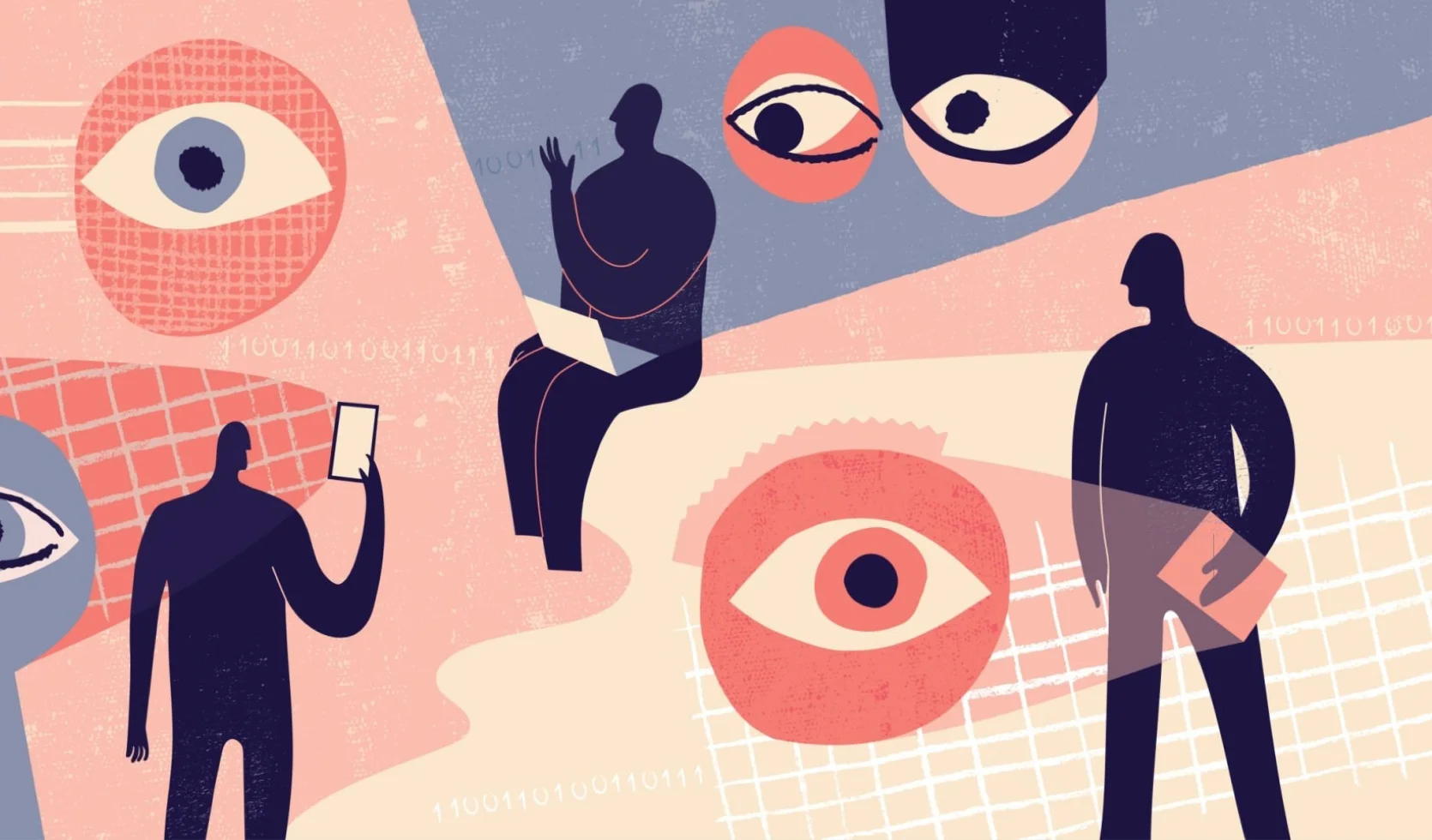The internet has become an integral part of a student’s life. From researching for a school project to participating in online courses, the digital world is a treasure trove of information and opportunities. However, this vast resource comes with its own set of challenges, particularly concerning online privacy.
Students, often considered digital natives, may still overlook the significance of safeguarding their personal information online. The risks are manifold, including identity theft, cyberbullying, and unauthorized access to academic records.
In a world where a simple Google search can lead to an array of services, even ones like Paperwriter promising to write papers for me cheaply, it’s crucial to understand that your data can be harvested and misused in ways you may not expect.
This article aims to provide a comprehensive guide on how to protect your online privacy as a student. We will cover why privacy matters, common risks you may encounter, and practical steps to ensure your online safety.
The Importance of Online Privacy for Students

Your privacy matters now more than ever, as much of our lives, including education, have moved online. Personal information such as your name, date of birth, and even school records can be incredibly sensitive. Falling into the wrong hands, this data can lead to adverse outcomes ranging from identity theft to academic fraud.
Moreover, educational institutions hold a lot of personal information that can be at risk if not adequately safeguarded. Cybercriminals can target schools and universities, leading to large-scale data breaches. The ripple effect of such an event can be enormous, affecting not just students but faculty and staff as well.
Common Online Risks for Students
There are several avenues through which your online privacy can be compromised, some more evident than others.
1. Phishing Scams
These are fraudulent attempts to obtain your sensitive information, often through emails that mimic legitimate organizations. As a student, you may receive phishing emails pretending to be from your school or an educational platform, tricking you into revealing login credentials.
2. Unsecured WiFi Networks
Using public WiFi networks, often available in places like cafes and libraries, can expose your data to interception. Cybercriminals can easily hack into unsecured WiFi networks to gather sensitive information from connected devices.
3. Social Media Risks
Your personal information is not just at risk from hackers but can also be harvested by companies through social media platforms. These companies use your data to target you with ads, and in worse cases, might sell it to third parties.
4. Third-Party Apps and Services
Many students use third-party apps for note-taking, schedule management, and other academic activities. While these apps offer convenience, they also pose a risk if they are not from a reputable source or if they require excessive permissions on your device.
Being aware of these risks is the first step toward securing your online presence. In the following sections, we will delve into actionable steps you can take to protect your online privacy effectively.
General Best Practices for Online Privacy
While students are often considered tech-savvy, it’s crucial not to overlook basic online privacy practices that can serve as your first line of defense against potential risks.
1. Strong and Unique Passwords
Your passwords serve as the keys to your digital life. Using weak or repetitive passwords makes it easier for cybercriminals to gain unauthorized access to your accounts. Aim to use strong, unique passwords that incorporate a mix of characters, numbers, and symbols. Using a password manager can make this process easier and more secure.
2. Two-Factor Authentication (2-FA)
2-FA adds an extra layer of security by requiring not just a password and username but also something only the user has on them, like a piece of information only they should know or have immediately on hand, such as a physical device. Enable 2-FA on all accounts that offer it, including your university portal and personal email accounts.
3. Secure Internet Connection
When you’re working online, especially on public WiFi, consider using a VPN. A VPN encrypts your internet connection, making it more difficult for hackers to intercept any data you send or receive. This is particularly useful when you’re connected to unsecured networks, like public WiFi in airports or coffee shops.
How to Safeguard Social Media Accounts

Social media is a double-edged sword when it comes to online privacy. While it allows us to stay connected with friends and family, it also exposes us to potential privacy risks. However, there are ways to secure your social media presence.
The first step in securing your social media accounts is understanding and adjusting your privacy settings. These settings control who can see your posts, who can look you up using the email address or phone number you provided, and who can send you friend requests. Make sure to limit the visibility of your posts to people you trust and know personally.
The second rule of thumb is to be careful with the type and amount of personal information you share. Avoid posting sensitive information like your home address, phone number, or anything that could be used to identify you or your location.
Lastly, it’s important to understand that once something is posted online, it’s tough to erase it completely. This is known as your digital footprint. Be mindful of the pictures you post, the statuses you update, and even the information you provide in your bio. Future employers, universities, and even potential partners might look you up online, so ensure your digital footprint represents you appropriately.
By adhering to these guidelines, you can maintain an active yet secure social media presence. In the following sections, we’ll explore specific tips for secure online learning and considerations for your academic work online.
Tips for Secure Online Learning
With the surge in remote learning, students increasingly rely on online platforms for their education. This shift has also opened new avenues for privacy risks. However, there are ways to ensure your online learning experience remains secure.
1. Secure WiFi Connection
Always ensure you’re connected to a secure and trusted WiFi network when attending online classes or accessing educational materials. If you have to use a public network, use a VPN to encrypt your connection.
2. Legitimate Online Resources and Tools
Before downloading any educational resources, make sure they come from a reputable source. Read reviews and check the app’s privacy policy to understand how your data will be used. Be cautious about granting permissions that an app requests; if an app asks for more permissions than it needs to function, consider it a red flag.
3. Importance of Antivirus Software
Make sure you have reliable antivirus software installed on your device. This will add an additional layer of security by detecting and removing harmful software that could compromise your online privacy.
Special Considerations for Online Research and Academic Work
Students often have to conduct extensive online research for their assignments, projects, or even group work. However, academic research also brings its own set of privacy concerns.
While it might be tempting to use any source that fits your narrative, it’s essential to use only verified and trusted academic resources. Unverified sources may not only compromise your academic integrity but could also pose risks to your online security.
When collaborating on group projects, always use trusted platforms for sharing documents and data. Platforms that offer end-to-end encryption should be your go-to choice. Make sure to set document permissions appropriately so only authorized individuals can view or edit them.
Your academic work is valuable, and you wouldn’t want someone else to take credit for it. Utilize plagiarism detection tools to ensure your work remains unique and secure. These tools can also help you avoid unintentionally using someone else’s content without proper attribution.
Takeaway
In an age where you can easily find services to pay someone to write my research paper, understanding the value and vulnerability of your online data is crucial. Being aware of the risks and taking proactive measures can go a long way toward safeguarding your online privacy. This is not just beneficial for your immediate academic life but will also serve you well in your future career and personal endeavors.
The steps outlined in this article provide a comprehensive approach to protecting your online privacy as a student. By taking these precautions seriously, you not only protect your personal and academic information but also contribute to a safer online environment for everyone. Implement these measures today to enjoy a secure and rewarding educational experience online.
Related Posts:
- Using Game Design Principles to Engage and Motivate Students
- Impact Does Technology Have On Student Learning
- Master Note-Taking Apps for Enhanced Student Productivity
- VPN Hack – How to Track VPN Users
